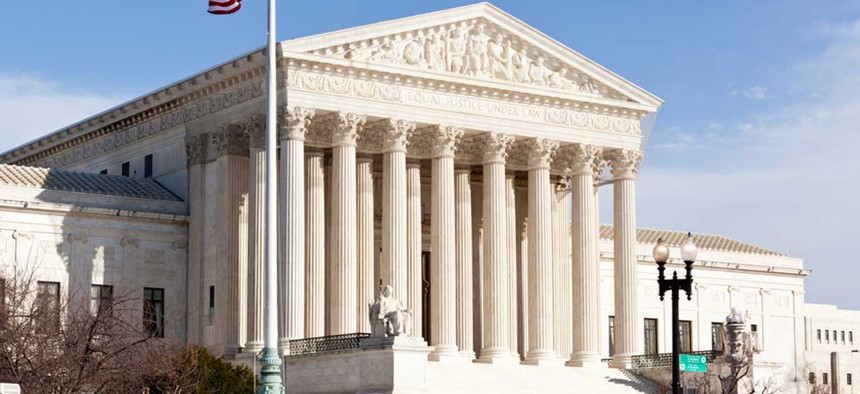
Steve Heap/Shutterstock.com
The Supreme Court Will Decide Whether Obama’s Immigration Plans Live or Die
The Court agrees to rule on the legal status of 4.3 million immigrants, taking on a hot issue in the presidential race.
The Supreme Court has agreed to rule on President Obama’s executive actions on immigration, a decision that will determine whether those programs ever see the light of day—and that could upend the presidential race.
The Court said Tuesday that it will hear a lawsuit challenging the program known as DAPA (Deferred Action for Parents of Americans), which would allow roughly 4.3 million undocumented immigrants to remain in the U.S. legally.
By accepting the immigration case, the Court has thrust itself into the center of a political storm. It’s taking on the most heated policy debate of the 2016 campaign and will likely rule in late June, just weeks before the parties’ conventions.
The Court’s ultimate ruling will determine not only Obama’s legacy on immigration, but also the shape of the immigration debate. Obama’s executive actions give Republicans something concrete to criticize and Democrats something concrete to support—what happens if they’re struck down?
Will the Court validate Republicans’ claims that Obama’s actions were an excessive power grab, or will it make legal status a real protection that a Republican president would have to actually take away?
Hillary Clinton, meanwhile, has said she would expand on Obama’s unilateral immigration reforms. But what happens to that pledge if Obama’s policies aren’t there to build on? And if the Court says Obama’s actions were an executive overreach, how would she defend her promises to reach even further?
It’s a similar situation to the one the Court, and the political process, faced in 2012, when the justices decided whether Obamacare would live or die. And the stakes are just as high this time: A favorable ruling from the Court is probably the only way Obama would be able to implement his immigration orders before leaving office.
The Court’s decision to hear the case is a win for the Obama administration, which has consistently tried to speed up the process while its opponents have sought delays that could have pushed a final ruling into the next administration.
A group of 26 states, led by Texas, filed the lawsuit now before the Supreme Court. They challenged DAPA almost as soon it was announced, arguing that the policy exceeded Obama’s authority and should have been subject to notice-and-comment rulemaking. The states say deferred deportations have injured them, in part, because they will have to spend money to provide health care, education, and driver’s licenses to the undocumented workers DAPA would protect.
Technically, lower courts have not yet ruled on whether DAPA is constitutional; they have blocked the program from taking effect while the debate over its merits plays out. The 5th Circuit Court of Appeals upheld that injunction in November, and that’s what the Obama administration appealed to the Supreme Court. The states, however, had asked the high court to go ahead and rule on the merits if it took the case.
(Image via Steve Heap/Shutterstock.com)
NEXT STORY: Your Weekly Perspective Check






